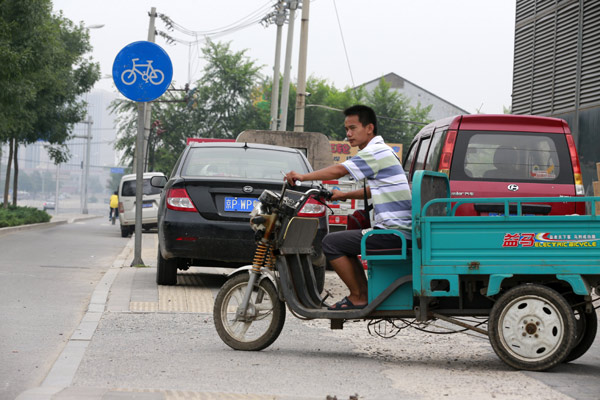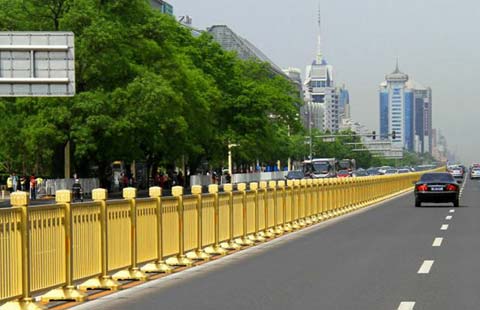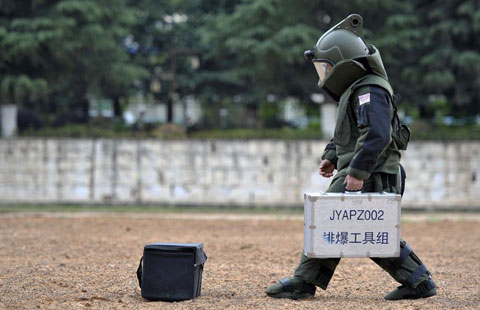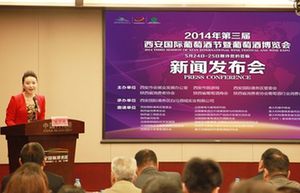Construction of parking lots still in slow lane
By Cao Yin and Zhang Yuchen in Beijing, and Wang Ying in Shanghai ( China Daily ) Updated: 2013-08-16 07:43:12
 |
|
Disorderly parking on the sidewalk is a common problem in big cities, especially Beijing and Shanghai. Feng Yongbin / China Daily |
Poor management and bogus fee collectors add to the problem, report Cao Yin and Zhang Yuchen in Beijing, and Wang Ying in Shanghai.
He Xiaobei, 25, is always frustrated when he drives in downtown Beijing. He is worried about parking because it can often take 15 minutes or longer to find a space.
On a recent trip, it took him more than 30 minutes to find a space on Gulou Dajie in Xicheng district. The fee, 15 yuan ($2.45) for 15 minutes, drove him crazy too.
There is no fixed citywide tariff and different areas charge differently.
"You would not believe how many times I drove around in circles, desperate for a parking place," he said. "Many people just leave their cars on the side of the road, but I'm wary of doing that because it is against the law. I was once fined 200 yuan for doing that."
"The convenience of parking has become my first consideration when I drive, especially on the weekends," he said.
He is just one Beijing resident concerned about the lack of parking spaces as a result of the massive increase in vehicle ownership in recent years.
By March 2012, around 5 million autos had been registered with the municipal government of Beijing. However, the number of parking spaces is only 2.48 million, according to a joint report by Beijing University of Technology and the Chinese Academy of Social Sciences, which noted that the capital needs another 2.5 million spaces in the inner-city areas to meet the rising demand.
The report noted that three types of parking sites are currently in use in Chinese cities: Specially built lots in shopping centers, railway stations, airports and other large buildings; off-road public parking lots; and parking either on the side of the road or on the sidewalk.
"The on-the-road or pavement parking areas are the source of most of the parking-related problems in the city, such as arbitrary charges and disorderly parking, but the companies that manage the spaces are not the only ones at fault," said Ding Limin, a professor who specializes in traffic safety at Chinese People's Public Security University.
The problems, including the rise of bogus wardens who charge drivers illegally and the use of fake parking fee invoices, require more action from the government. "Parking is a public service, and the government should devote more time and resources to it. It should be handled like public transport," said Ding.
|
|
|
|
|
|
|
|


















 Op Rana
Op Rana Berlin Fang
Berlin Fang Zhu Yuan
Zhu Yuan Huang Xiangyang
Huang Xiangyang Chen Weihua
Chen Weihua Liu Shinan
Liu Shinan